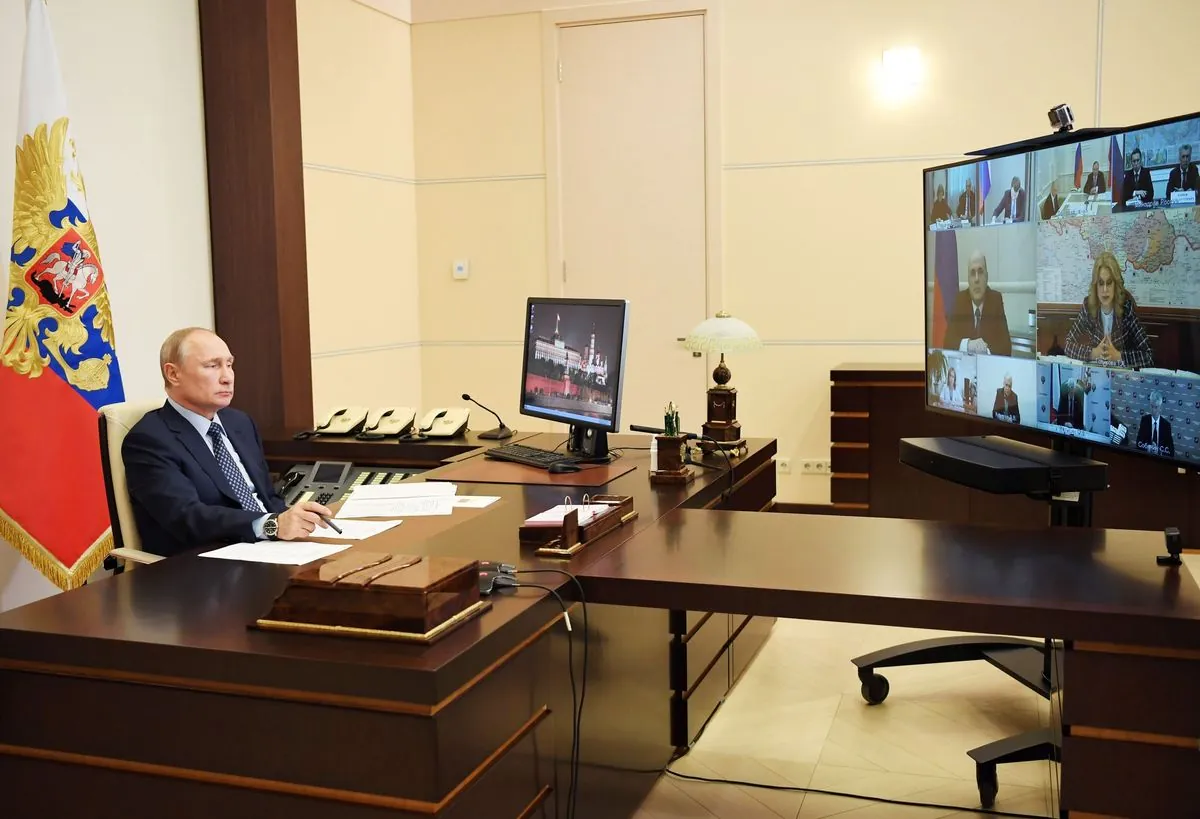In recent developments, Vladimir Putin's administration appears to be reevaluating its approach to international tensions surrounding the Ukraine conflict. The Kremlin's repeated use of nuclear threats is losing its effectiveness, prompting a search for more nuanced strategies to address Western support for Ukraine.
Russian propagandists have been quick to amplify nuclear rhetoric. Alexander Mikhailov, director of the Bureau of Military Political Analysis, suggested simulating nuclear strikes on mock-ups of Western landmarks. Similarly, Vyacheslav Volodin, speaker of the lower house, warned of potential nuclear retaliation against European targets.
However, sources close to Russian diplomats indicate a growing recognition within the Kremlin that such threats are becoming less impactful. An anonymous Russian official stated, "There is already immunity to such statements, and they don't frighten anyone." This sentiment is echoed by academics with ties to senior Russian diplomats, who view nuclear options as the least likely scenario.
Tatiana Stanovaya, founder of R-Politik, suggests that Putin is exploring various options to deter Western support for Ukraine without resorting to nuclear measures. The Russian leader reportedly sees nuclear weapons as the "worst option for everyone, including himself."
The situation is complicated by the perception that Western nations are consistently crossing Russia's "red lines." Since the invasion began in 2022, approximately 2 years and 6 months ago, Russia has warned against supplying Ukraine with advanced weaponry, yet these warnings have been largely disregarded.
"He doesn't want to turn into anything dramatic or drastic, in the sense of nuclear, or direct fighting between our troops and his troops, but [that] doesn't mean to say that there's not something serious going on."
Potential non-nuclear responses being considered include sabotage operations against Western military targets or infrastructure, as well as leveraging proxy groups like the Houthi militia in Yemen. These actions could allow Russia to retaliate while maintaining plausible deniability.
The nuclear rhetoric, despite its waning effectiveness, continues to play a role in international politics. It has been amplified by some U.S. political figures, including former President Donald Trump and Robert F. Kennedy Jr., who recently warned of increased nuclear risks in an op-ed for The Hill.
As the situation evolves, uncertainty grows regarding Putin's future responses to Western actions. Stanovaya suggests that even Putin himself may be unsure of his next moves, highlighting the complex and unpredictable nature of the ongoing conflict.
This shift in Russian strategy comes at a time when global attention is focused on the delicate balance of power in Eastern Europe. As the conflict approaches its third year, the international community watches closely to see how Russia's new approach will shape the future of the region and global security dynamics.
